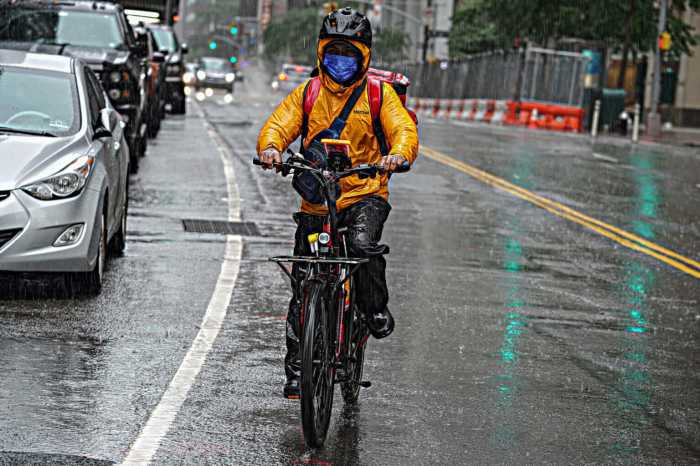
Here’s yet another thing you’re paying a lot more for in New York City.
More than a quarter of New Yorkers’ cell phone bills goes to taxes, higher than the national average of 17.25%, according to a report by the nonpartisan watchdog group the Tax Foundation.
Although the extra cash goes to essential services like 911 and mass transit, experts say the taxes are an unnecessary burden.
“Is this a revenue grab? It certainly looks like it,” said Scott Drenkard, an economist at the Tax Foundation. “This is just singling out one consumer base and asking them to pay a disproportionate rate.”
The various taxes — local and state 911 service and Metropolitan Commuter Transportation District (MCTD) sales taxes, which help pay for the MTA — cost a New York City user with a $100 family plan an additional $25.12 a month, according to the study released Wednesday. Chicago, which recently had an increase to its 911 fee, had the highest tax percentage of the billat 35.42%.
Connecticut and New Jersey’s cellphone state taxes, by comparison, make up 7.78% and 8.84% of the total bill respectively.
Drenkard said the federal government has given too much leeway to state and city governments to create these taxes. As a result, municipalities find ways to increase their revenue by going after a service that is a necessity for most people, Drenkard said.
“It’s hard to raise property taxes, it’s unpopular to raise sales taxes. This is a backdoor way to bring in more revenue,” he said.
Most New Yorkers who had cellphones with city area codes agreed, calling the taxes another levy in a long lists of overpriced living costs.
“It makes sense. This town has a lot of taxes so I’m not that surprised,” said Dionne Herbert, 23, who pays $80 to $90 a month for her cellphone.
Moving to another state that has lower cellphone taxes, such as Oregon where 1.76% of a mobile bill goes to Uncle Sam, won’t give you a break either. Drenkard said the taxes for the state that the user set up their service stays with them wherever they are, as long as they retain the number.
D’Arcy Benincosa, 37, learned that lesson the hard way when she moved to the city from Utah in 2004. Benincosa, a photographer who now lives in the East Village, got a 917 number and paid an extra $20 before going back to a Utah area code. She said the city taxes were “much steeper” than back home.
The report recommended state and city governments to crack down on these unnecessary taxes and New York elected officials agreed that something needs to be done.
City Councilman Rafael Espinal, the consumer affairs committee chair, was appalled when learning of the phone taxes Thursday. Espinal, who recently changed cellphone providers to save $30 on his bill, said he would look into ways to reduce the taxes and fees on bills.
“It is a major interest to me and I can see how I can be we can help,” he said.
State Sen. Brad Hoylman, who sits on the senate’s consumer protection committee, said he would also consider creating legislation in Albany to make the cellphone taxes less regressive such as waiving the taxes for low-income customers.
“Your phone bill is a byzantine document that requires a lot of study,” he said. “The ability to pay should be a guiding principle.”



























